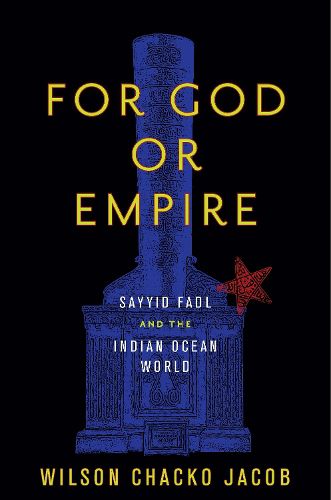Readings Newsletter
Become a Readings Member to make your shopping experience even easier.
Sign in or sign up for free!
You’re not far away from qualifying for FREE standard shipping within Australia
You’ve qualified for FREE standard shipping within Australia
The cart is loading…






Sayyid Fadl, a descendant of the Prophet Muhammad, led a unique life-one that spanned much of the nineteenth century and connected India, Arabia, and the Ottoman Empire. For God or Empire tells his story, part biography and part global history, as his life and legacy afford a singular view on historical shifts of power and sovereignty, religion and politics.
Wilson Chacko Jacob recasts the genealogy of modern sovereignty through the encounter between Islam and empire-states in the Indian Ocean world. Fadl’s travels in worlds seen and unseen made for a life that was both unsettled and unsettling. And through his life at least two forms of sovereignty-God and empire-become apparent in intersecting global contexts of religion and modern state formation. While these changes are typically explained in terms of secularization of the state and the birth of rational modern man, the life and afterlives of Sayyid Fadl-which take us from eighteenth- and nineteenth-century Indian Ocean worlds to twenty-first century cyberspace-offer a more open-ended global history of sovereignty and a more capacious conception of life.
$9.00 standard shipping within Australia
FREE standard shipping within Australia for orders over $100.00
Express & International shipping calculated at checkout
Sayyid Fadl, a descendant of the Prophet Muhammad, led a unique life-one that spanned much of the nineteenth century and connected India, Arabia, and the Ottoman Empire. For God or Empire tells his story, part biography and part global history, as his life and legacy afford a singular view on historical shifts of power and sovereignty, religion and politics.
Wilson Chacko Jacob recasts the genealogy of modern sovereignty through the encounter between Islam and empire-states in the Indian Ocean world. Fadl’s travels in worlds seen and unseen made for a life that was both unsettled and unsettling. And through his life at least two forms of sovereignty-God and empire-become apparent in intersecting global contexts of religion and modern state formation. While these changes are typically explained in terms of secularization of the state and the birth of rational modern man, the life and afterlives of Sayyid Fadl-which take us from eighteenth- and nineteenth-century Indian Ocean worlds to twenty-first century cyberspace-offer a more open-ended global history of sovereignty and a more capacious conception of life.